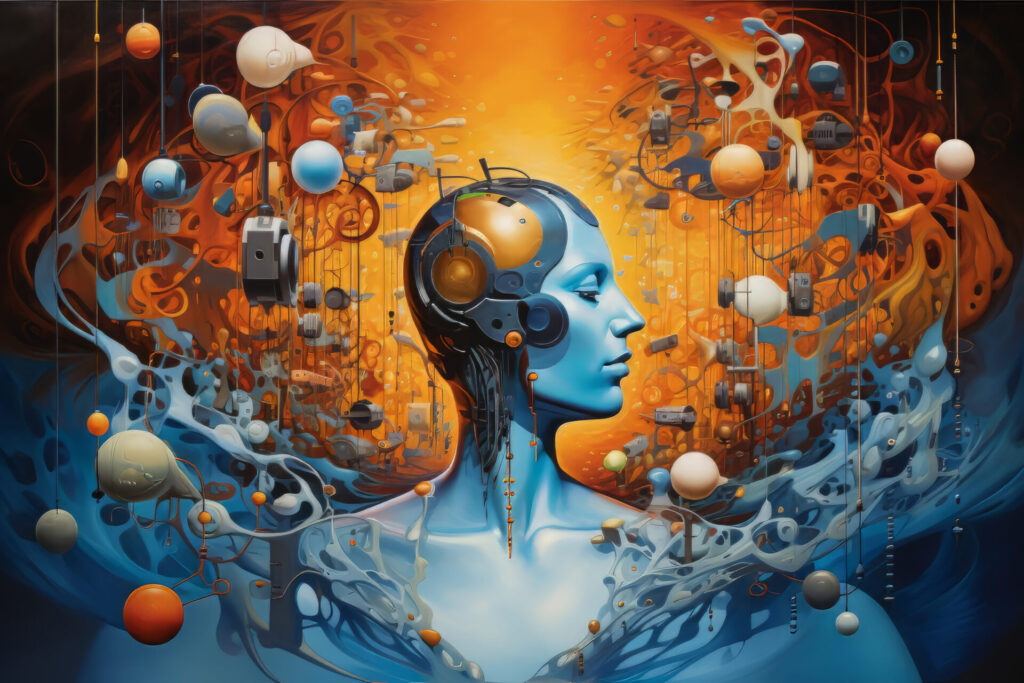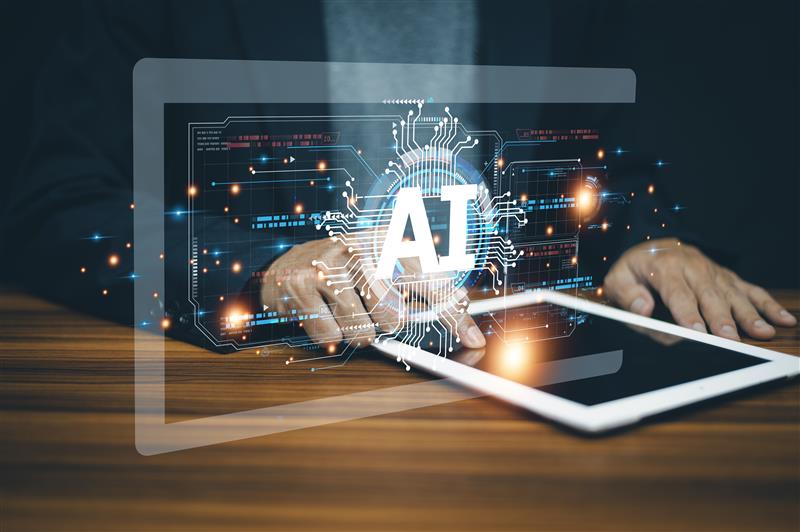Artificial Intelligence (AI) is reshaping industries, and its role in product development is no exception. By enhancing creativity, streamlining workflows, and fostering precision, AI is transforming the journey from start to end. Let’s explore how AI with its game-changing technologies like Generative AI, Natural Language Processing (NLP), and machine learning—is revolutionizing software product development.
1. Generative AI’s Role in Product Ideation
One of the most crucial stages in product development is ideation, and Generative AI is elevating it to unprecedented heights. These AI models can swiftly generate and refine ideas, enabling teams to explore a myriad of innovative possibilities in seconds. By analyzing user demographics, preferences, and market trends, Generative AI empowers businesses to craft tailored solutions that resonate profoundly with their target audiences.
Consider a fashion brand, it could use Generative AI to design collections that cater to emerging consumer preferences, or a tech company could explore new features for their next product release. The result? Faster AI-driven product development and a competitive edge in the market.

2. Utilizing NLP to Enhance Feedback Analysis and Personalization
Natural Language Processing (NLP) is becoming indispensable for understanding and improving user experiences. By processing vast amounts of unstructured data—like customer reviews, social media mentions, and support ticket, NLP tools uncover insights into user sentiment, emerging trends, and areas for improvement.
Beyond analysis, NLP drives hyper-personalization. Modern NLP algorithms adapt product interfaces to match a user’s tone, language, and preferences. Whether it’s customizing recommendations on a streaming platform or chatbot’s responses, NLP makes interactions more intuitive and engaging.
3. Generative AI Helping in Prototyping and Simulation
Prototyping has always been a critical yet time-intensive stage of development. Generative AI simplifies this process by creating realistic digital prototypes that simulate various usage scenarios and environmental conditions. This capability not only reduces the need for physical prototypes but also accelerates testing and iteration cycles.
Take the automotive industry, for example. Generative AI can predict wear and tear patterns in materials, leading to more durable vehicles. Similarly, in healthcare, AI can design medical devices that meet rigorous safety standards while expediting time-to-market.

4. AI-Powered Automation Increasing Efficiency Across Development
AI-driven automation is redefining capability in product development. By automating repetitive tasks, from data input to coding and testing, AI allows teams to focus on higher-value activities like innovation and strategy.
In manufacturing, AI systems optimize workflows, monitor equipment for maintenance, and ensure smooth operations. This not only improves productivity but also minimizes errors, ensuring that products meet quality standards consistently.
5. Data-Driven Decision-Making Leads to Smarter Products
AI’s ability to analyze vast datasets is empowering businesses to make more informed decisions. Predictive analytics, fueled by historical and real-time data, helps companies anticipate market demands, refine product features, and mitigate risks.
For example, a consumer electronics company can use AI to predict which features will appeal most to their audience, ensuring their next product launch aligns with customer expectations. This data-driven approach not only boosts the chances of success but also strengthens a company’s competitive position.

6. Ensuring Compliance and Security with AI
The current technological scenario demands top-notch compliance and security. AI tools can integrate compliance frameworks directly into development workflows, automatically flagging potential issues and identifying vulnerabilities. These proactive measures help businesses avoid penalties and build trust with their customers.
For instance, AI-powered tools can monitor codebases for security risks or ensure that a medical device meets all regulatory standards before its release.
7. The Future of AI in Software Product Development
The rapid advancements in AI are reshaping the field of software product development, offering tools and capabilities that were unimaginable just a few years ago. These innovations are enabling companies to rethink and revolutionize every stage of the development process. From using NLP for enhanced customer insights to combining Generative AI with AR/VR for immersive prototyping, the opportunities for growth and innovation are virtually limitless.
One of the key advantages of AI-driven development is its ability to integrate deep insights into consumer behavior. By analyzing vast datasets, teams can predict market trends and design products that align precisely with consumer demands. This capability reduces guesswork, allowing businesses to create targeted and successful solutions. For instance, predictive analytics tools can help refine a product’s features to meet future market needs before competitors even identify them.
AI is also transforming the prototyping process. Immersive technologies such as AR/VR, when combined with AI, enable developers to create dynamic, interactive prototypes that are far more realistic than traditional methods. This not only cuts down the time and costs associated with iterative design but also improves accuracy in testing scenarios. So, product designers can simulate real-world usage conditions and optimize performance without the need for extensive physical trials.
Furthermore, predictive analytics (another cornerstone of AI), helps companies foresee potential challenges and mitigate risks early in the development cycle. This foresight ensures a smoother transition from ideation to prototyping and finally to production. By identifying bottlenecks and vulnerabilities in advance, teams can avoid costly delays and deliver higher-quality products to market.
Investing in AI Product Development Services is more than just a step toward innovation; it’s a strategic move for building sustainable growth. Companies leveraging this service can consistently innovate faster, reduce operational costs, and exceed customer expectations. As the marketplace continues to evolve, adopting AI not only ensures competitiveness but positions businesses as leaders in their industries.

Conclusion: Embrace the Power of AI with Dynamisch
At Dynamisch, we’re harnessing the transformative potential of AI-driven product development. Excelling in Generative AI and Machine Learning solutions, we empower businesses to excel in a competitive landscape. Whether it’s creating smarter products, enhancing efficiency, or delivering impactful solutions, our expertise ensures success at every stage of development.
One of our standout projects includes a healthcare application for color vision tests, used by both government and private organizations in the U.S.A. This solution showcases how AI-driven innovation can make a tangible difference.
The future of product development starts here. Partner with Dynamisch and redefine what’s possible.

